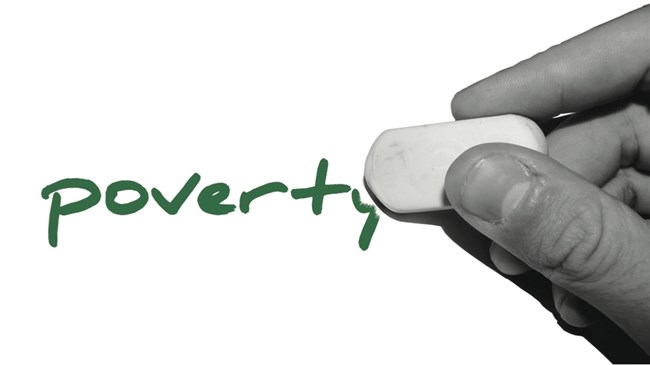
The Declaration, which was adopted at the 40th annual meeting of G77 Foreign Ministers on September 23, reaffirmed, “the overarching objective of eradication of poverty in all its forms and dimensions”, describing it as “the greatest global challenge and an indispensable requirement for sustainable development,” according to Ipnews.
Reiterating that poverty eradication is a central imperative of the UN’s Agenda for Sustainable Development, the ministers emphasized “the need to address poverty in all its forms and dimensions in order to truly leave no one behind”.
The targeted deadline for the eradication of poverty worldwide is 2030.
General Prayut Chan-O-Cha (Retd.), prime minister of Thailand and G77 chair of the Ministerial Meeting said: “This year, we have together taken the first steps in translating vision into concrete action, in line with developing countries’ needs and interests and to realize the SDGs.”
Since the start of this year, he pointed out, the Group has played an active role in implementing the 2030 Agenda through (1) negotiating a resolution on Follow-up and review of the 2030 Agenda for Sustainable Development at the global level; (2) reviewing global agenda outcomes under the High-Level Political Forum on Sustainable Development; (3) following-up on Financing for Development (FfD); (4) determining a global indicator framework for SDGs; (5) supporting implementation of the Agenda in the Least Developed Countries (LDCs) through negotiating a political declaration for the High-Level Mid-term Review according to the Istanbul Program of Action for LDCs; and (6) strengthening cooperation among developing countries on the High-Level Meeting on South-South Cooperation.
Addressing the meeting, UN Secretary General Ban Ki-moon praised the key role played by the G77 in the adoption of both the SDGs and the Climate Change agreement last year.
The United Nations and the G-77 have an invaluable partnership, he told the Ministers. “Together, we have made enormous progress for human rights and human dignity.”
Singling out the commemoration of the 30th anniversary of the Declaration on the Right to Development on September 29, Ban said the G-77 was also a driving force behind the adoption of the 2030 Agenda for Sustainable Development — “our truly transformative plan for the planet and all people”.
“Many G-77 countries also helped push for the adoption of the Paris Agreement on Climate Change. Thank you for this advocacy,” he said.
Ban pointed out that G-77 kept its distinctive name even after the membership expanded to 133 countries, joined by China (from the original 77). “In the same way, I hope you keep the Group’s founding spirit to stand up for the countries of the South while expanding your engagement to tackle emerging threats.”
With this mix of timeless values and timely action, he declared, “We can build on our proud record and leave a better world for generations to come. Thank you for your leadership and commitment.”
Some of the key elements of the Declaration include the following:
The ministers highlighted that the year 2016 marked the first year of the implementation of the 2030 Agenda for Sustainable Development towards a sustainable future. Thus, it is important to show the international community the Group’s continued unwavering commitments to further translate ambitions set out in the Agenda into real actions.
In this context, the ministers noted that 2017 will mark the 50th anniversary of the First Ministerial Meeting of the Group of 77 which adopted in October 1967 the ‘Charter of Algiers’, the first platform of the G-77 calling for joint efforts by developing countries towards economic and social development, peace and prosperity.
The ministers welcomed the progress made by member states in their national implementation, but stressed that implementing the 2030 Agenda at all levels requires a revitalized global partnership and the full implementation of the 17th Sustainable Development Goal, which is dedicated to this purpose.
In this context, said the Declaration, enhancing support to developing countries is fundamental, including through provision of development financial resources, transfer of technology on favorable terms including on concessional and preferential terms, enhanced international support and targeted capacity-building and promoting a rules-based and non-discriminatory multilateral trading system.
The ministers urged the international community and relevant stakeholders to make real progress in these issues, including developing action plans to support the implementation of the 2030 Agenda.

Add new comment